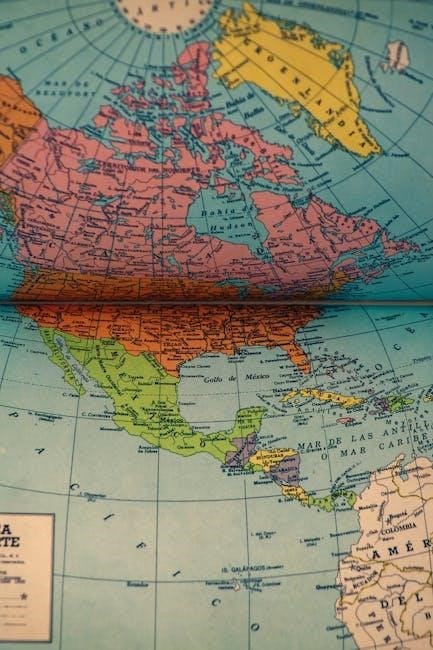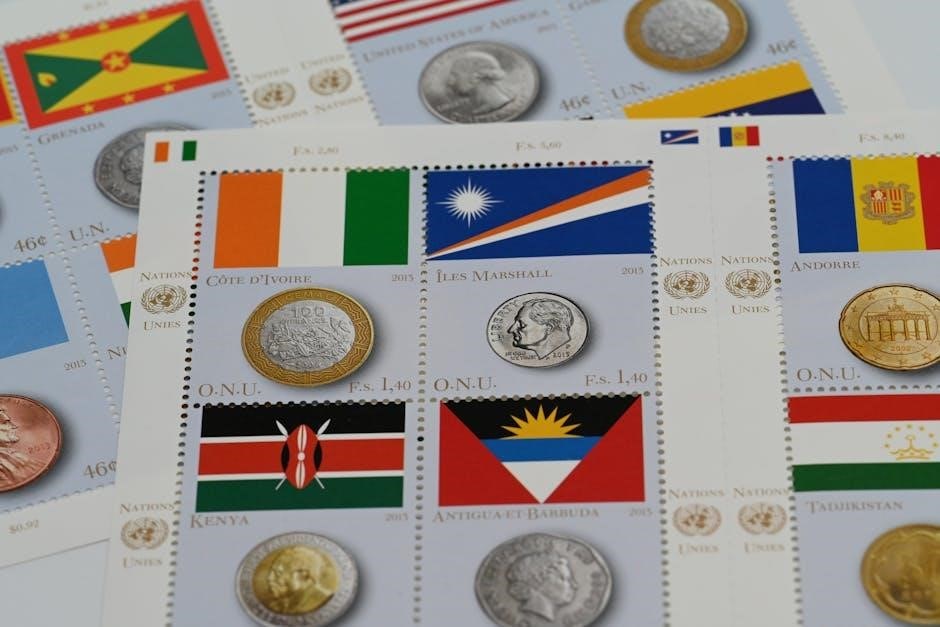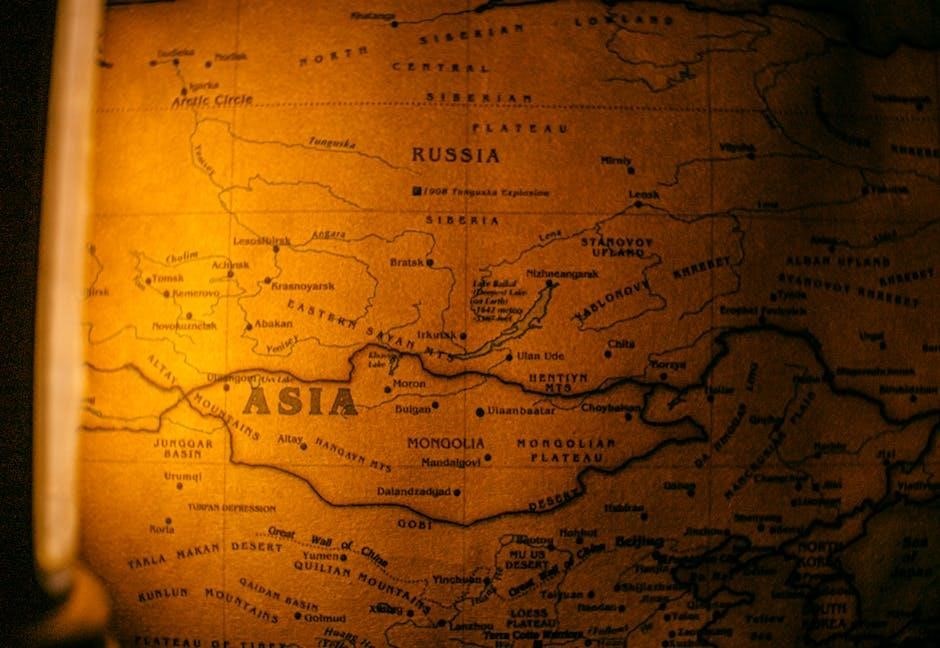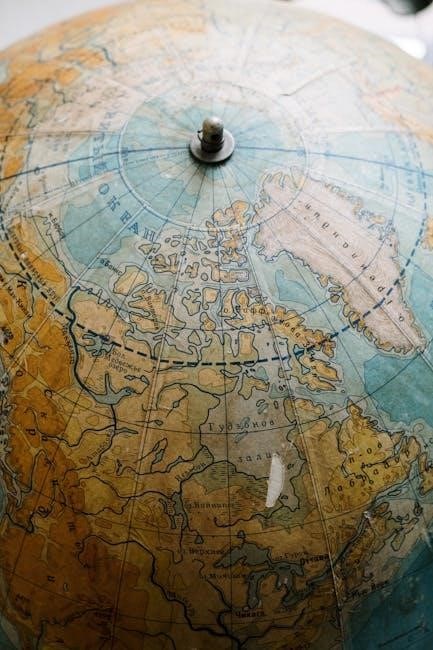
The unit 6 study guide world history covers historical developments from 1750 to 1900, including key concepts and learning objectives, using online resources and study materials for ap world history students effectively today always.
Overview of the Time Period 1750-1900
The time period from 1750 to 1900 was a significant era in world history, marked by major transformations and developments that shaped the modern world. This period saw the rise of industrialization, imperialism, and nationalism, which had far-reaching consequences for societies and economies. The unit 6 study guide world history focuses on this time period, exploring the key events, trends, and ideas that defined it. Online resources and study materials provide a wealth of information on this topic, including historical developments, cultural exchange, and the impact of technological advancements; By examining the complex interactions and relationships between different regions and civilizations, students can gain a deeper understanding of the forces that shaped the world during this period. The study guide covers a range of topics, from the expansion of empires to the emergence of new ideologies, and provides a framework for analyzing the complexities of this pivotal era in world history, using various online tools and resources effectively.

Consequences of Industrialization
Industrialization led to significant economic and social changes, altering global power dynamics, using
online resources
and study guides for world history students effectively always today.
Main Ideas of Unit 6
The main ideas of unit 6 study guide world history include understanding the consequences of industrialization and its impact on global power dynamics, as well as the rationales for imperialism from 1750 to 1900.
Key concepts such as social Darwinism, nationalism, and the concept of the “white man’s burden” are also explored in this unit, providing students with a comprehensive understanding of the historical developments that shaped the world during this time period.
Online resources and study guides are available to help students navigate the complex topics and ideas presented in unit 6, including the role of governments in industrialization and the wealth and might of industrialized nations.
By examining the main ideas of unit 6, students can gain a deeper understanding of the complex historical developments that have shaped the modern world, and develop critical thinking and analytical skills to apply to real-world problems and issues.
Overall, the main ideas of unit 6 provide a framework for understanding the significant economic, social, and political changes that occurred during this time period, and their ongoing impact on global affairs today.

Imperialism and Its Justifications
Imperialism was justified through various ideologies, including social Darwinism and nationalism, during the period from 1750 to 1900, shaping global power dynamics and international relations effectively always online.
Rationales for Imperialism from 1750 to 1900
The period from 1750 to 1900 saw various rationales for imperialism, including economic, political, and social factors.
These rationales were used to justify the expansion of imperial states and the subjugation of colonized peoples.
The idea of social Darwinism, which posited that certain races were inherently superior to others, was used to justify imperialism.
Nationalism also played a role, as imperial powers sought to expand their territories and spread their influence.
Additionally, the concept of the “white man’s burden” was used to justify imperialism, with imperial powers claiming that they had a duty to civilize and modernize colonized peoples.
These rationales were often intertwined, and were used to justify a range of imperialist policies and practices.
The study of these rationales is essential for understanding the complex and multifaceted nature of imperialism during this period.
By examining these rationales, students can gain a deeper understanding of the historical context in which imperialism emerged and evolved.
This knowledge can also inform contemporary debates about globalization, power, and inequality.
Overall, the rationales for imperialism from 1750 to 1900 are a crucial topic of study in world history.

Impact of Industrialization on Global Power
Industrialization shifted global power dynamics, with industrialized nations gaining economic and military advantages over non-industrialized nations rapidly changing world history and politics every day online always effectively.
Migration and Urbanization of People into Cities
The migration and urbanization of people into cities was a significant consequence of industrialization, as people moved from rural areas to cities in search of factory jobs and better living conditions. This led to the growth of cities and the development of new social systems. Many people were attracted to cities by the promise of higher wages and improved living standards. However, the reality of city life was often harsh, with poor working conditions, long hours, and inadequate housing. Despite these challenges, the migration and urbanization of people into cities played a crucial role in shaping the modern world. The growth of cities driven by industrialization led to the development of new technologies, cultural institutions, and social movements. As people moved to cities, they formed new communities and developed new ways of life, which in turn contributed to the growth and development of industrialized nations. Urbanization continues to shape the world today.

Role of Governments in Industrialization
Governments played a crucial role in industrialization by implementing policies and laws that supported economic growth and development effectively always using online resources.
Industrialization and the Wealth of Nations
The process of industrialization had a significant impact on the wealth of nations, as it enabled countries to produce goods more efficiently and increase their economic output. This led to an increase in the standard of living for many people, as well as an increase in global trade and economic growth. The wealth of nations was also influenced by the availability of natural resources, such as coal and iron, which were necessary for industrialization. Additionally, the development of new technologies and manufacturing processes allowed countries to produce goods at a lower cost, making them more competitive in the global market. Overall, industrialization played a crucial role in shaping the wealth of nations during this time period, and its effects can still be seen today. The impact of industrialization on the wealth of nations is a key concept in understanding the history of this time period. Countries that industrialized early on were able to gain a significant economic advantage over those that did not.